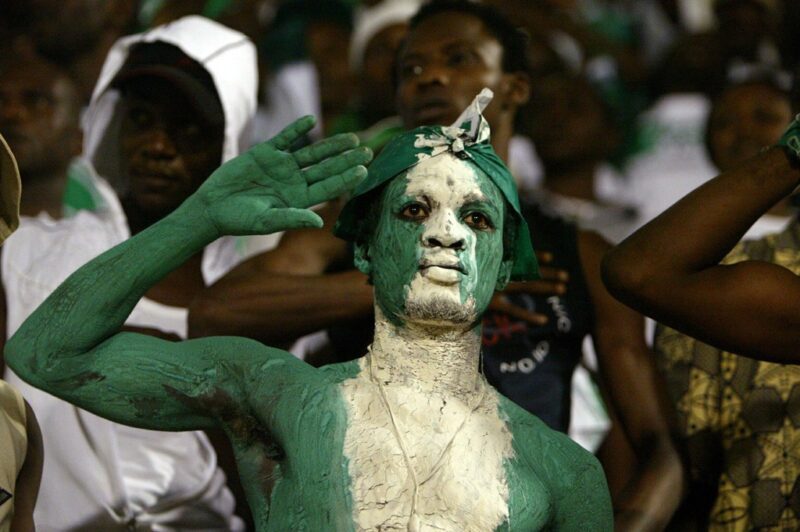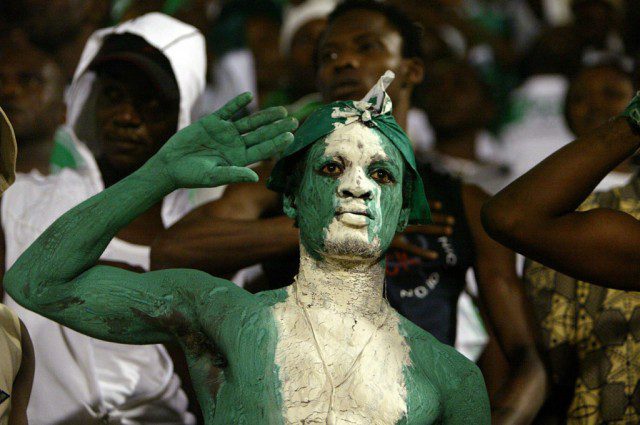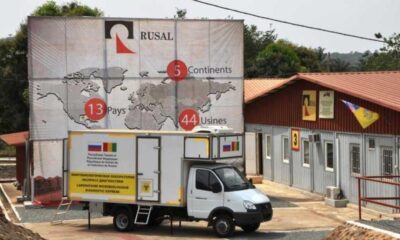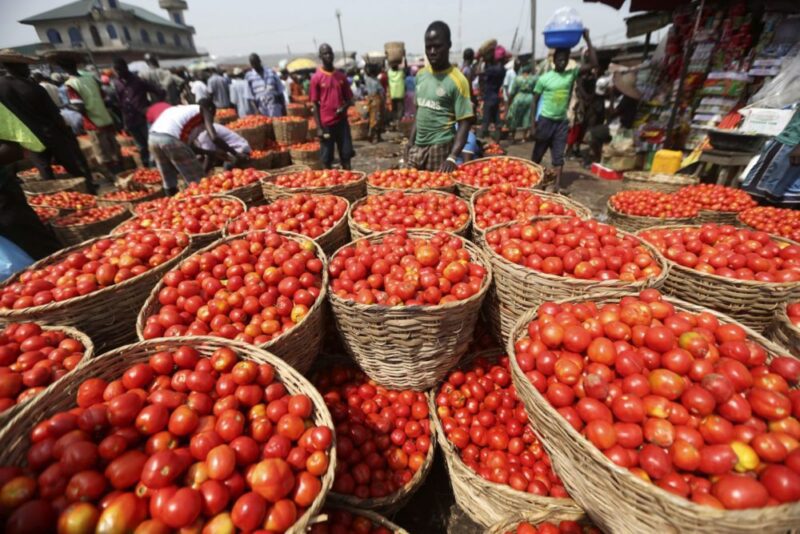National Issues
Tribalism In Nigeria; The Way Forward

If there is any one word that has become a serious threat to patriotism for Nigerians, it is tribalism. Right from the cradle of creation, man has had course to exceed his boundaries especially in an atmosphere of common tongues. The aforementioned statement made obvious with the biblical story of the tower of babel is a clerical citation. Onyeka Owenu the iconic Nigerian musical legend did emphasis in one of her song that ‘in our diversity lies our unity’. I really applaud that truism but, would wish this same diversity has not left us more divided in our interest. This is the reason I wish that this article would boldly address without malice to the reputation of any group of tongues. It is not in any way possible to address the issue of tribalism without trampling the ego of persons or insulting the dignity placed in certain quarters. All these are the reason, not much is ever said in this regards, but rather than leave in the torments of tribalism and ethnicity, we have a choice of opening up our wounds for treatment, to heal.
After the amalgamation of the Southern and Northern protectorate in 1914, the Nigerian State had grown over time with soaring distrust amongst its heterogeneous facets. Even though our independence emerged without bloodshed, one wonders if the cumulative atrocities of tribal wars have not left more death tolls that can be likened to a genocide. The discovery of oil in 1956 launched the country into an era of resource conflict. Crude oil became the bane of our unity. The geo-political landscape of Nigeria was maneuvered in and out of regime, so as to obtain the maximum demand on the oil revenue for a faction of the ethnic group in power. Sadly enough, the power tussle at the center was static in the North to cushion the powers of the resource owners. Thus, the power revolved delicately around the Northern front, while volatile personalities from the South were appeased to support the scheme. At a time when the Easterners felt they would secure their independence from the lingering timidity of succumbing to the North, the Civil war of 1967 was inevitable. This war which was to install the Republic of Biafra, left them scrambling for their right for decades, till the third Republic birthed a new dawn for their absolution.
Historians in Nigeria have accumulated an archive of ethnic and communal conflicts that leaves a perspective of our days of horror. It is difficult in this part of the world to separate our ethnic values from our religious practices. Thus, more often, talks on ethnic malign always spill out a religious affiliation. Also, most religious crisis in Nigeria have had to end up bearing ethnic involvement. From 1970 up till 1990 about 20 ethno-crisis have been documented across Nigeria. Although, most of these crises occurring in Northern Nigeria had religious and political undertone the crises in the south, east and western regions were conspired by land and resource control. Over 10,000 lives have been reported to be claimed cumulatively by these odd events that has so characterized the growing stage of our history as an envied nation in Africa. According to Prof. Humphrey Nwosu, the breach of the peace caused by both ethnic and religious crises has been so great that political alignment and the formation of political parties have been characterized by the ganging of ethnic champions.
With the institution of the National Confab, an initiative applauded in favour of President Goodluck Ebele Jonathan by many Nigerians, we began to hive a sigh of relief that the days of our ethnicity tussle will soon be off our memories. No sooner had the conference wind up than we began to notice agitations and uproar by fractional groups dissociating themselves from the report of the conference. Then, it is only pertinent at this stage of our national existence to begin to ask questions like…
-
What is the way forward?
-
Is Nigeria at the end of its cliff as a nation?
-
Have we gained our continuous existence despite our obvious diversity of interest and opinion?
-
Can we really exist as a nation?
The questions can run from now to infinity but we just have one of this question to answer, which I think is pertinent enough because it is devoid of sentiment but arose from the consent to truth. What is it that binds us together?
In spite of the ugly trends of marginalization suffered by minority ethnic groups and the disenfranchisement of some of the major ethnic groups, the country is still a singular entity today. Somehow, by some forces that are not too visible to the onlooker, we have managed our epidemic and ills for almost 54 years now. For as many that believe in Nigeria’ posterity, there exist some remarkable seeds of greatness that has not been appreciably appreciated. For, only when these seeds are groomed in the soil of our aspiration, shall we evolve a New Nigeria devoid of ethnicity.
The ‘Gross Domestic Poverty’ (GDP) that has engulf the country needs to be strictly address as this has been the sources of major ethnic crisis whose root causes have not been uncovered till date. The present government drive for self-sufficiency by states coupled with the clamour for true federalism is frankly the way out of the stench of poverty no matter your discretion. At least the sentiments associated with resource owners and the marginal defects of allocation is truncated for it has always escalated into major ethno-conflicts in the past.
The structures of government still abhors the vacuum the maintains our separation. The utilization of the apparatus and instrumentation of federal character presupposes that persons from several regions will continue to be relegated to the background. With respect to the existent structure, the ruling scheme that will erase tribe and ethnic front from our country will have to be a system were allocations of portfolio is based on qualification and merit. Until this is the utmost factor of consideration, we still live our unity a quest in mirage.
Lastly, there is no true religion that supports violence, and no ethnic group will place premium on the blood of non tribes. Thus, since the government of this country have invested so much to appreciate our religious leaders as well as our traditional heads. They should stand up to the tenets of their calling and shepherd their people to align their minds to national development. We know that Nigerians have high regards for spiritual and traditional leaders. The more these our well respected elders of inestimable value extricate themselves from the manipulative hands of politicians, the better for our unity. They, also with their mediation do have the potential to open our doors of fortune in the spiritual realm. No matter how awkward this may sound to some persons, we Nigerians are spiritual people thus, our lives are directed to a larger extent by the forces of spiritual intercessions.
It is not an accident of history that we have been cemented from our dispersed settlements under the umbrella Nigeria. The weight we pull as the giant of Africa is still a renowned crown that creates a nitche for us whenever the African continent converge. We can never underscore the greatness of the entity called Nigeria over tribal and religious sentiments. The fact that we have suffered setbacks from the lackluster mischievousness of bad leaders, should not deter our collective efforts. We should take solace in many of the nations of the world that have recreated their history, Singapore, China, India and even our neighboring Ghana.
Many of our national heroes had foretell of fortunes to come, the only hindrance to the emergence of this reality is our faith in the Nigerian Posterity. Many a times the Nigerian youths are constrained to reason their future to be better outside the shores of this land. Many of our fathers and mothers have reasoned Nigeria to be a country where the wills of politicians prevails against all odds. Many of the citizen have given u the fight to restore the nation to its ordinance of prosperity. The average Nigerian sees his/her effort to believe and work sincerely in the verge to build the mother land as effort in futility.
But, hope is all we have to savage, let there be hope because Nigerians are not known for cowardice, we are gallant to survive at all odds. There is no cause to big or humiliating that will prevent us from marching forward as a nation. Arise o compatriots and trample on the barrier of ethnicity, lets hold hands as we march with our faces not beaming with sentimental tribal marks but with the radiant colours of Green White and Green.
God Bless Nigeria!!!



















